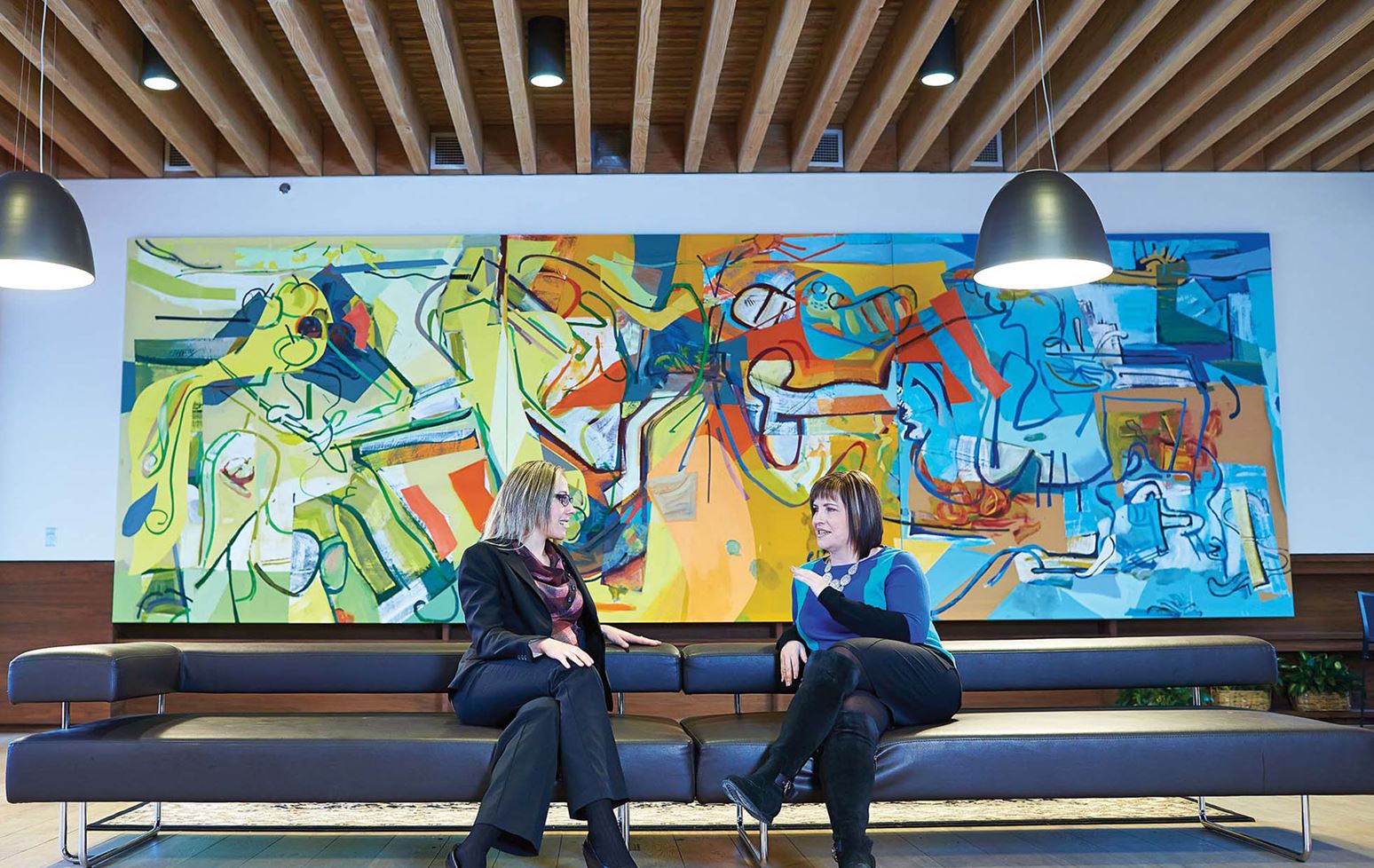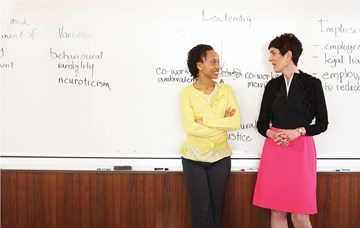Professors June Cotte and Miranda Goode are interested in why consumers do what they do.
What were some of the important early influences on your life?
Cotte: Attending basketball camp at the University of Manitoba. Nobody in my family had gone to university, but being exposed to university from a young age, I got it in my head that it was the next step after high school.
Goode: My Grade 12 biology teacher, who fuelled my passion for science, and my marketing professor in undergrad who helped me appreciate what a career as an academic would be like.
Why did you focus your research on consumer behaviour?
Goode: As a biology student, I started off doing a lot of research in the bio-control of livestock pests. But I soon realized that it was more interesting to study people than bugs!
Cotte: I was working at Union Gas when I discovered that I enjoyed research but didn’t like supervising staff. I started out to do a PhD in international marketing strategy, and found that, for me, strategy was not as rich a field as studying the behaviour of individual consumers.
What are your key contributions to the field of consumer behaviour?
Cotte: Gambling behaviour has been an interest of mine for many years. Another area is temporal perception—how people understand time and how that influences their behaviour. For example, we have shown that people’s perception of time influences their behaviour in loyalty programs.
Goode: I hope my most significant contribution is still to come, but I’m proud that my research on the subtle effects of exposure to money on behaviour has inspired so many other researchers to investigate this area.
What is the project you are working on together?
Goode: In our everyday lives we’re bombarded with “consumer cues”—opportunities and encouragements to buy. Our research is about what effect this constant barrage has on how we think, feel, and behave, how people manage these cues, and what happens when the effects spill over into other contexts.
Cotte: We’re interested, for example, in what happens in health care when people act like consumers rather than patients, or in education, when they act as consumers rather than students.
How does your research help marketers?
Cotte: I always joke that I’m the anti-marketing professor, because much of my work focuses on educating consumers to be thoughtful in their behaviours! But of course, most of the work can be flipped.
Goode: Our work also helps develop thoughtful marketers who are concerned about consumer welfare and connect with consumers as people.
What do you enjoy about teaching at Ivey?
Cotte: I love case teaching. It’s difficult to learn initially but incredibly rewarding. It’s fun because every time you go into a class with a case, you get a different interaction.
Goode: The freedom to develop my own courses, including one in consumer insights. Teaching at Ivey allows me to bridge research and practice in the classroom.
What do you hope students take away from your interactions with them?
Cotte: That marketing is an investment, not an expense, and that you need to be able to prove its worth.
Goode: That consumers are people, not statistics or generic descriptions.
What have you learned from each other?
Cotte: Having been trained in a different tradition, I’ve learned a lot from Miranda’s scientific rigour.
Goode: June has had a tremendous impact on me as a research collaborator, colleague, and friend. She has pushed me to really think through the more practical applications of my research and to appreciate the value of different research paradigms.
Photo: Nation Wong
Art Direction: Greg Salmela, Aegis



